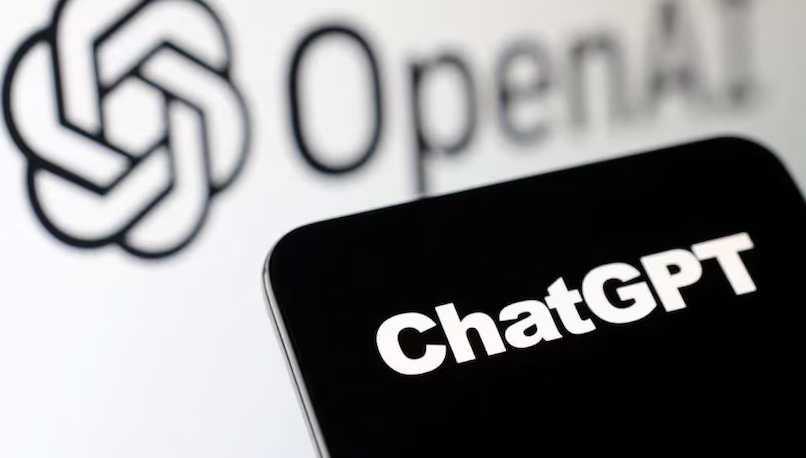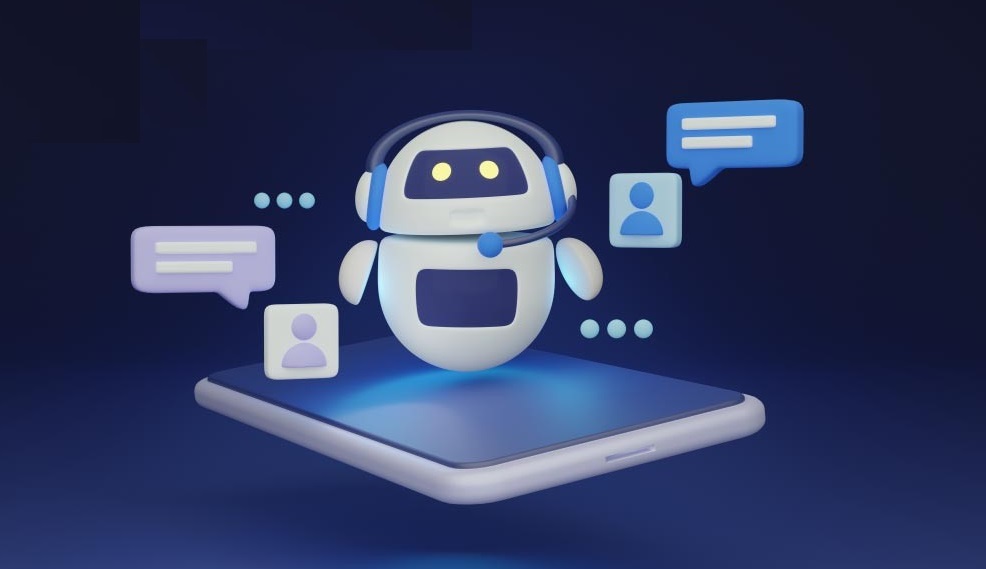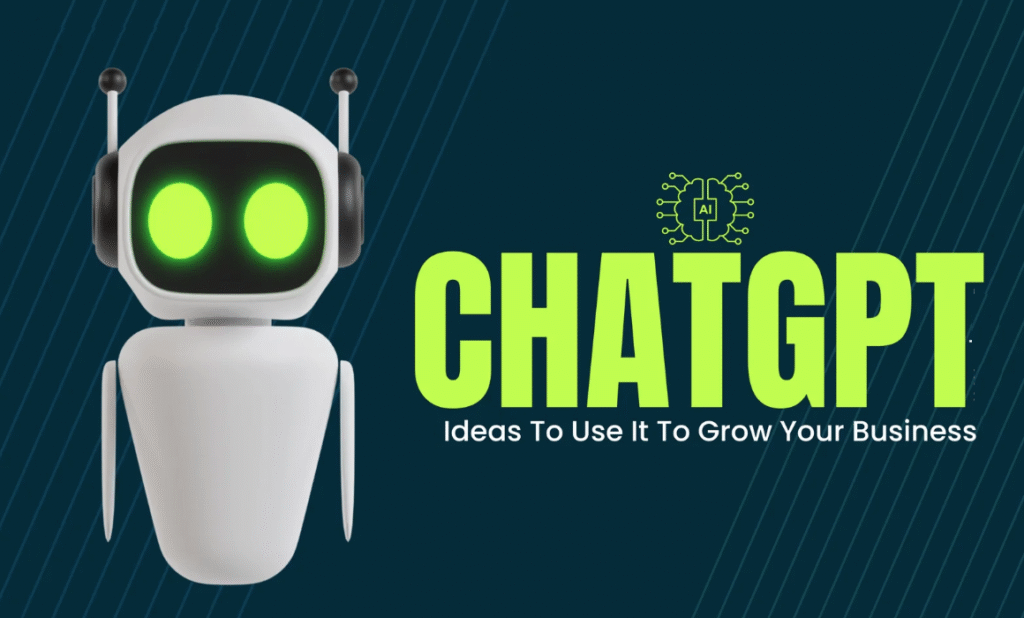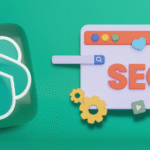Introduction
In today’s fast-moving digital economy, small businesses face increasing pressure to do more with less—less time, fewer resources, and tighter budgets. As a result, many entrepreneurs are turning to artificial intelligence tools like ChatGPT to bridge the gap and streamline daily operations. With rising search interest in terms like “Can ChatGPT help my business?”, “AI for small business,” and “ChatGPT for entrepreneurs,” it’s clear that AI is no longer limited to large corporations. It’s becoming an essential tool for startups, freelancers, and local businesses alike.
ChatGPT, developed by OpenAI, is a conversational AI model capable of generating text, answering questions, creating content, and even simulating business strategies—all through natural language prompts. Its ease of use, speed, and versatility make it a game-changing assistant for tasks ranging from content writing and customer service to proposal drafting and social media management.
This article explores how ChatGPT can help small business grow by automating workflows, reducing overhead, and unlocking creativity—while also addressing its limitations and ethical considerations. Whether you’re just starting out or scaling up, this guide will show how ChatGPT can support your success in a competitive, AI-driven marketplace.
Why Small Businesses Are Embracing AI
In today’s fast-paced digital economy, small businesses are increasingly adopting AI tools like ChatGPT to stay competitive, save time, and streamline operations. With limited budgets and lean teams, small enterprises need scalable, cost-effective solutions—and AI offers exactly that. High-CPC search phrases like “AI for small business,” “how to use ChatGPT for business,” and “ChatGPT for entrepreneurs” indicate a growing interest among business owners in integrating AI into their workflows.
One of the biggest advantages AI provides is operational efficiency. ChatGPT can automate time-consuming tasks such as writing emails, generating content, answering customer queries, or summarizing reports—freeing up business owners to focus on strategy and growth. Whether it’s a local bakery crafting Instagram captions or a solo consultant generating client proposals, ChatGPT provides a practical edge.
Another reason small businesses are embracing AI is accessibility. Unlike traditional enterprise software, ChatGPT doesn’t require advanced technical skills or infrastructure. With just a browser or mobile app, users can generate ideas, draft plans, or simulate business grow scenarios—all using natural language.
In a competitive marketplace, agility is everything. ChatGPT allows small businesses to react quickly to market trends, adapt content strategies, or refine customer service scripts with just a few prompts. Keywords like “ChatGPT business growth,” “AI tools for startups,” and “how to automate tasks with ChatGPT” are gaining traction, proving the tool’s expanding relevance in small-scale business operations.
AI tools like ChatGPT are no longer just for tech giants. For small businesses, they represent a powerful opportunity to amplify productivity, reduce costs, and make smarter, data-driven decisions—without hiring additional staff or investing in complex systems.
Key Business Functions ChatGPT Can Support
ChatGPT is more than just a chatbot—it’s a dynamic business assistant that can enhance productivity and creativity across multiple departments within a small business. As more entrepreneurs explore “how can ChatGPT help my business?” or “ChatGPT for small business automation,” the practical use cases continue to expand.

Below are the most impactful business functions where ChatGPT offers real value:
🛎 a. Customer Service & Chatbot Integration
Small businesses often struggle to provide 24/7 customer service. ChatGPT can help by generating automated replies, FAQ scripts, or even full chatbot dialogues. For example, using prompts like “Create an automated response for delayed shipping inquiries,” business owners can quickly build consistent customer experiences.
High-CPC keywords such as “ChatGPT customer service automation” reflect growing interest in AI-powered service solutions that don’t require large support teams.
📝 b. Content Creation & Marketing
From writing blog articles, social media posts, and email newsletters, to product descriptions and landing page content, ChatGPT acts as a full-service content generator.
Sample prompts:
- “Write an Instagram caption for a boutique coffee brand launching a seasonal blend.”
- “Generate a 500-word blog post on eco-friendly packaging solutions.”
Keywords like “ChatGPT content marketing,” “AI blog generator,” and “write product description with ChatGPT” show the tool’s increasing use in digital marketing.
📊 c. Business Planning & Strategic Insights
Entrepreneurs often wonder, “Can ChatGPT help me write a business plan?” The answer is yes. ChatGPT can assist in:
- Creating business plan outlines
- Drafting SWOT analyses
- Summarizing market research reports
- Generating value propositions
Prompts like “Draft a lean business model for an online pet supply store” or “Create a SWOT analysis for a local bakery” can generate structured, insightful outputs in seconds.
📱 d. Social Media & Branding Support
ChatGPT can create social content calendars, generate ad copy variations, and even help develop a consistent brand voice. Many small businesses lack dedicated social media teams, and ChatGPT fills the gap with creative, timely posts tailored to your audience.
Examples:
- “Generate 10 Twitter posts promoting a weekend sale.”
- “Write a Facebook ad targeting moms interested in organic snacks.”
These time-saving capabilities are supported by rising keyword trends like “ChatGPT for social media marketing” and “AI content ideas for business.”
⚙️ e. Task Automation & Internal Operations
Beyond external communication, ChatGPT can streamline internal tasks such as:
- Drafting emails and proposals
- Summarizing meeting notes
- Generating standard operating procedures (SOPs)
For instance, “Summarize this client meeting transcript into bullet points” or “Write a follow-up email for a sales inquiry” are highly practical prompts for small business teams.
In summary, ChatGPT serves as a multi-functional tool across marketing, customer service, operations, and planning. For small enterprises looking to scale without increasing overhead, it acts as a virtual assistant—available 24/7 to support the tasks that keep a business running and growing.
Real-World Examples of ChatGPT in Small Businesses
As interest in AI skyrockets, real-world applications of ChatGPT in small businesses are becoming more common—and more impressive. From automating customer service to streamlining content production, ChatGPT is helping entrepreneurs achieve more with fewer resources. High-CPC keywords like “ChatGPT business success story” and “how ChatGPT helps small business owners” reflect this growing trend.
☕ Case 1: Local Café Enhances Social Engagement
A family-owned coffee shop in Oregon used ChatGPT to boost its Instagram engagement. The owner prompted ChatGPT with:
- “Write 7 Instagram captions for a coffee shop’s fall drink specials.”
The AI-generated content led to a 30% increase in follower engagement and consistent branding across their weekly promotions. The café now uses ChatGPT weekly to plan posts, promotional copy, and even respond to online reviews.
🧾 Case 2: Freelance Consultant Automates Proposals
A freelance marketing consultant frequently searched “how can ChatGPT help me write proposals?” and discovered that ChatGPT could draft client proposals, email responses, and even contract outlines. With prompts like “Write a professional proposal for a content marketing project,” the consultant reduced proposal creation time from hours to minutes—freeing up time for client work.
🛍️ Case 3: E-commerce Startup Streamlines Product Descriptions
An online skincare brand selling through Shopify used ChatGPT to generate SEO-friendly product descriptions. Using the prompt:
- “Write a 150-word product description for an organic facial serum targeting eco-conscious buyers,”
the founder quickly developed compelling listings that aligned with their tone and brand. Their search visibility and conversion rates improved significantly.
📦 Case 4: Logistics Company Improves Internal Documentation
A small logistics firm with limited admin staff used ChatGPT to write SOPs, summarize meeting transcripts, and generate onboarding documents. By asking prompts like “Create a standard operating procedure for warehouse inventory management,” they built a professional internal knowledge base without hiring additional staff.
These examples demonstrate that ChatGPT is not just theoretical—it’s practical. It empowers small business owners to create high-quality content, automate repetitive tasks, and operate more efficiently. Whether you’re a solopreneur or managing a team of five, ChatGPT can be your always-available assistant, ready to support your business growth with just a prompt.
Limitations and Ethical Considerations
While ChatGPT offers significant advantages for small businesses, it’s important to understand its limitations and ethical implications to avoid missteps that could affect your brand, compliance, or credibility. Search terms like “is ChatGPT accurate for business use?” and “ethical concerns using ChatGPT for content” are gaining traction—showing that business owners are wisely approaching AI adoption with caution.

1. Accuracy and Data Limitations
ChatGPT doesn’t access real-time data unless used with plugins or APIs. Its responses are based on patterns learned from training data up to a certain point, which means it may hallucinate facts or provide outdated or generalized information. For example, market trends or legal regulations may not be up-to-date.
2. Over-Reliance on AI
Using ChatGPT as your only decision-making tool is risky. While it can offer drafts, suggestions, and summaries, critical business decisions still require human oversight, domain knowledge, and emotional intelligence.
3. Content Originality & Plagiarism
Although ChatGPT generates original content, there is always a risk of unintentional similarity to existing content. Businesses should always run AI-generated text through plagiarism checkers and edit for brand tone, clarity, and uniqueness.
4. Privacy and Confidentiality
Never feed ChatGPT sensitive business information, financial data, or customer records. The AI does not store individual chats, but best practice dictates caution when dealing with confidential data.
Best Practice:
Use ChatGPT as a support tool, not a replacement. Validate outputs, edit for authenticity, and combine AI efficiency with human insight. Ethical, responsible use of ChatGPT can greatly benefit your business—while also protecting your brand and integrity.
Getting Started: How to Integrate ChatGPT into Your Workflow
Integrating ChatGPT into your small business workflow doesn’t require a tech team or complicated software. In fact, one of the reasons it’s becoming so popular—reflected in high-CPC searches like “how to use ChatGPT for business” and “ChatGPT for daily tasks”—is its accessibility and ease of use.
Step 1: Choose Your Access Point
You can use ChatGPT directly through OpenAI’s website, or via the ChatGPT mobile app. For advanced features like GPT-4, plugin access, and better performance, consider upgrading to ChatGPT Plus.
Step 2: Identify Routine Tasks
Begin by listing repetitive or time-consuming tasks in your business, such as:
- Drafting emails or blog posts
- Responding to customer FAQs
- Creating social media captions
- Writing proposals or SOPs
Once identified, these tasks can be supported or even automated with ChatGPT prompts.
Step 3: Create Prompt Templates
Save time by developing reusable prompt templates. Example:
- “Write a 150-word product description for [product] aimed at [target audience].”
- “Generate 5 Instagram captions for [theme or offer].”
Step 4: Review and Edit
Always edit ChatGPT outputs to match your brand tone and verify facts. AI is a co-pilot—not a final decision-maker.
By embedding ChatGPT into your daily operations, you’ll gain a virtual assistant that saves time, boosts output, and allows you to focus on high-impact areas like customer engagement and growth strategy.
Conclusion
For small businesses looking to streamline operations, boost content output, and stay competitive, ChatGPT offers an accessible and impactful solution. From drafting blog posts and customer emails to building business strategies and automating social media, its versatility is transforming how entrepreneurs manage daily workflows. With growing interest in search queries like “can ChatGPT help my business?” and “AI tools for small business growth,” it’s clear that AI adoption is no longer a luxury—it’s a smart move.
However, success lies in how you use it. When combined with human insight, ethical practices, and strategic thinking, ChatGPT becomes a powerful co-pilot—enhancing efficiency without compromising authenticity.
Whether you’re a solopreneur or managing a small team, starting small with AI integration can lead to big results. ChatGPT isn’t just a trend—it’s a practical tool to help your business grow in the AI-powered digital era.



